Thrush:
Symptoms, Causes & Preventative Measures


What Is Thrush?
We have all heard of it but what is a yeast infection? Genital thrush (aka a yeast infection) is caused by a fungus called Candida, which naturally occurs on the body and does not usually cause any problems. Whilst our immune system and beneficial bacteria usually prevent Candida from thriving, it can grow and cause infection under certain circumstances – we’ll talk about this in more detail shortly.
Thrush is not considered to be a sexually transmitted infection and it’s not generally considered to be contagious. Therefore, it’s uncommon for it to be transferred during sex, but sex can trigger a thrush infection. Sex can also prolong thrush symptoms so it’s best to avoid it during treatment and until your yeast infection symptoms have completely resolved.
What Causes Thrush?
It can be rather tricky to answer the question “how do you get thrush?” This is because, in most cases, there is no obvious reason why the yeast infection has occurred. However, there are some factors that can increase the likelihood of developing a vaginal yeast infection. These include:
- Taking antibiotics
- Hormonal changes e.g. pregnancy, during the menstrual cycle, Hormone Replacement Therapy (HRT), taking the contraceptive pill
- Weakened immune system
- Diabetes
What Are The Most Common Thrush Symptoms?
The most common thrush symptoms to watch out for include:
- Itchiness or soreness of the skin of the vulva/vagina
- Redness or swelling of the skin of the vulva/vagina
- A change in vaginal discharge – yeast infection discharge may appear thick and white or thin and watery
- A burning sensation when urinating
- Painful sexual intercourse

How Can I Avoid Getting Thrush?
If you’re wondering “why do I keep getting thrush?”, you’re not alone. Unfortunately, around 1 in 20 women will experience recurring vaginal thrush, in which the infection returns at least 4 times per year. Luckily, there are a couple of preventative measures that you can take to reduce the risk of developing an infection.
1. Hygiene
Thrush occurs when the natural pH balance of the vagina is altered. Therefore, it’s a good idea to avoid washing the vaginal area with scented soaps and shower gels as they can upset the healthy balance. Instead, you should use soap substitutes, such as emollient ointment, and warm water to wash the vulva each day.
In the same respect, you should avoid using scented wipes or vaginal deodorants as they too disrupt the natural balance. Whilst it’s normal for vaginal odour to change throughout your menstrual cycle, unpleasant odours can indicate infection. Therefore, if you’re worried or tempted to use perfumed products to mask your vaginal odour, you should see your GP to rule out infection.
Similarly, you should avoid using vaginal douches. The vagina cleans itself by producing natural secretions (discharge). Using a vaginal douche removes these natural secretions and healthy vaginal bacteria, upsetting the balance.
2. Medication
Yeast infections are more likely to occur when taking antibiotic medication. This is due to the medication killing off the beneficial bacteria in the vagina which helps prevent the overgrowth of Candida. Taking probiotics or other forms of anti-thrush medication whilst on antibiotics can significantly reduce the risk of infection.
3. Sex
As mentioned above, thrush is not a sexually transmitted infection but sex can be a factor in its occurrence. Friction during sex can sometimes cause minor damage to the vagina/ vulva which can make Candida more likely to thrive. To reduce friction, you can keep the vagina well-lubricated with silicone or water-based lubricants before having penetrative sex.
4. Clothing
Thrush tends to develop in warm, moist conditions so your choice of clothing could help prevent infection from developing. Here are some tips:
- Avoid wearing tight-fitting clothes, like tights, for long periods of time
- Opt for breathable, cotton underwear
- Do not wear underwear in bed
Repeat Prescription
Thrush Treatment
Where Can I Get a Prescription for Thrush Treatment?
Sometimes, despite taking preventative measures, we develop thrush. Luckily, yeast infections are easily treated and there are lots of thrush treatment options.
You can now request a prescription for Thrush Treatment via our convenient online prescription service! Simply fill out the short and secure questionnaire to describe your symptoms and we’ll do the rest. One of our Irish-registered doctors will then review your request to make sure this treatment is medically safe and suitable for you. Once approved, we’ll send your prescription directly to an Irish pharmacy of your choice. The best part? This prescription service costs just €25!
Whilst you don’t need to make an appointment with a GP to request a prescription for Thrush Treatment, you can speak to one of our experienced GPs if you have any questions or you would like to discuss the treatment in more detail. Simply book an online video consultation!
How It Works
Through an online medical questionnaire, face-to-face video consultation or home health test, our online doctors will review your case and prescribe the best treatment for you.

Step 1
Online Questionnaire

Step 2
Medical Review

